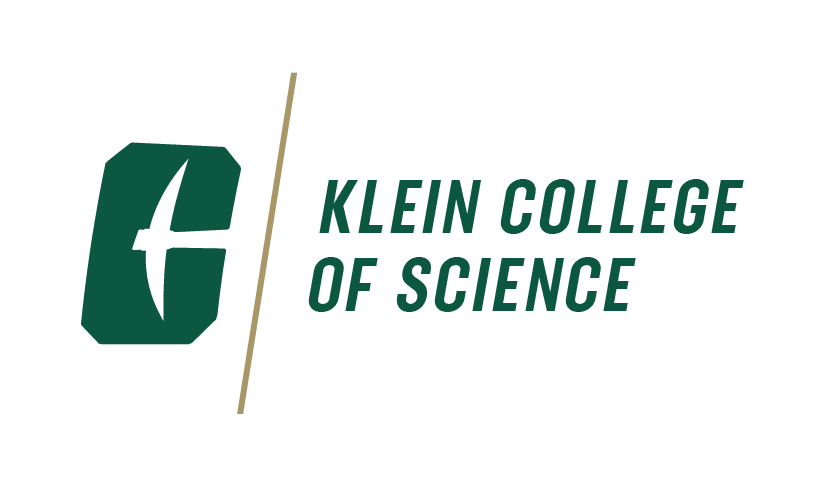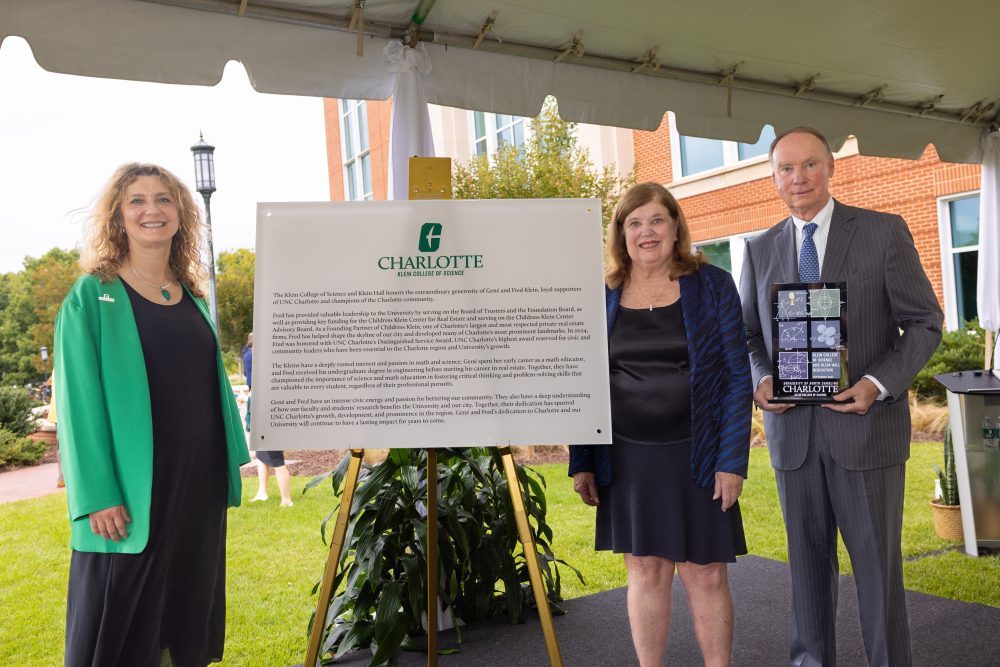History of the Klein College of Science

Sherman L. Burson Jr. was the inaugural dean of the College of Arts and Sciences. Chancellor E. K. Fretwell named Burson as dean in 1980, forming the college by merging what were then three separate colleges: the College of Humanities, the College of Social and Behavioral Sciences and the College of Science and Mathematics.
Schley Lyons served for twenty years as dean of the College of Arts and Sciences, from 1985 until his retirement in 2005. The college was re-named to the College of Liberal Arts & Sciences (CLAS) with Nancy Gutierrez serving as dean. In the fall of 2021, the University announced it would launch a review of the structure of CLAS. Jennifer Troyer, serving at that time as Dean of the Belk College of Business, led the committee to assess the reorganization. In 2022, a divisional model began, with Bernadette Donovan-Merkert overseeing the STEM departments inside CLAS.
On July 1, 2023, UNC Charlotte leadership announced a full separation of STEM departments, once again forming two colleges, with Donovan-Merkert named as interim dean and tasked with the formal work to create the new science-focused college.
On September 27, 2023, the Board of Trustees approved names for the two new colleges forming from CLAS, and the College of Science was founded, with the departments of Biological Sciences, Chemistry, Mathematics and Statistics, and Physics and Optical Science, as well as the Botanical Gardens and McMillan Greenhouse.

In August 2024, the Board of Trustees named Donovan-Merkert as the founding dean of the College of Science. A month later, a transformational gift from Fred and Gené Klein gave the College its namesake: the Klein College of Science, with administrative offices in Klein Hall.
Today, the Klein College of Science is home to more than 2,200 undergraduate and graduate majors and also plays a crucial role in providing general education requirements for all UNC Charlotte students with specialized science and mathematics training.
KCOS is committed to fostering a collaborative community that supports student success in science and mathematics, even for those whose majors lie outside these fields.